Pathologic fractures result from an underlying abnormality of the bone, usually either a primary bone lesion such as a tumor, or metastatic disease. However, pathologic fractures may result from metabolic conditions as well. A fracture results when normal stress is placed onto abnormal bone.
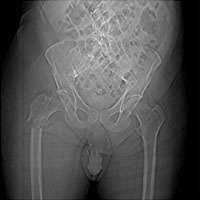 A A | Scanogram. This patient with renal cell carcinoma shows a comminuted fracture of the proximal right femoral shaft. |
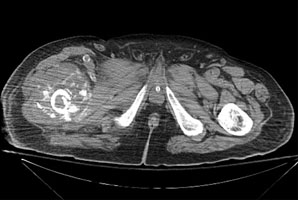 B B | Axial CT. This image through the fracture demonstrates a large soft tissue mass with extensive bony destruction. |
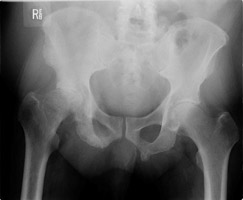 C C | AP radiograph of the pelvis. This is a different patient with prostate cancer. There are multiple sclerotic metastases. |
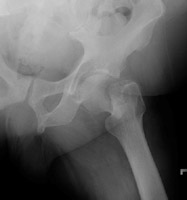 D D | AP radiograph of the left hip. Two years later, the patient presents with hip pain and a femoral neck fracture (basicervical). |
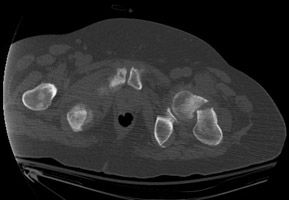 E E | Axial CT. This image clearly demonstrates the pathologic fracture through the left femoral neck at the location of a sclerotic bone metastasis. |
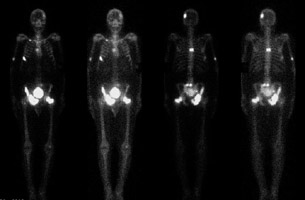 F F | Bone scan. This shows numerous areas of increased tracer uptake. The left femoral fracture is seen as are metastases in the pelvis seen on the original pelvis radiograph. Spine, rib, and skull metastases are present. |
 A
A B
B C
C D
D E
E F
F